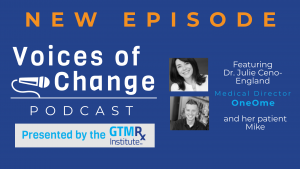Practice Transformation
Interprofessional collaborative practice (ICP) among providers in the primary care setting leads to markedly better patient outcomes for those with hypertension and diabetes, according to analysis published in JAMA Network Open. The authors also point out that the approach can help overwhelmed practices: “Concurrently, aging populations with chronic conditions may overwhelm primary care systems. ICP appears to be a plausible option for areas with limited access to care and in patients with poorer diabetes control.” Bottom line? “Adults with diabetes and/or hypertension should receive team-based care to improve outcomes.” (HCPLive; JAMA Network Open)
American Academy of Family Physicians offers several vaccination-related resources for consumers with the theme “Help us build a community of immunity.” The site, familydoctor.org/vaccines, includes links to information on an array of vaccines, including the COVID-19 one. It also features graphics that can be shared on social media and an inspirational video on everyday heroes and ends with a call to vaccinate. “With one shot, you could save lives. […] Be a hero, get vaccinated.” (FamilyDoctor.org)
Employers want to decrease waste and ensure their employees have access to effective, efficient, high-value care. Many are turning to medication therapy management. That’s a positive move, says GTMRx executive director Katherine Capps, but it’s insufficient. MTM is a broad, often undefined concept. To eliminate waste and ensure value, employers as health plan sponsors should demand a more sophisticated type of MTM, called comprehensive medication management, she argues. (Health IT Answers)
Evidence & Innovation
COVID has transformed the perception of drugmakers: In a February Harris Poll, 62% Americans give the pharma industry a positive rating. Just a year ago, only 32% rated the industry positively. However, as long as drug prices remain a concern, the warm feelings may not last, Jane Sarasohn-Kahn warns in her HealthPopuli blog. “Looking forward, the test of the sustainability of upwardly mobile pharma reputation in 2021 and 2022 will be drug pricing.” (HealthPopuli; FiercePharma)
More than 80% of primary care practices want to help with COVID-19 vaccine distribution, according to a survey from the Larry A. Green Center, the Primary Care Collaborative and 3rd Conversation. However, 25% of those who could administer COVID-19 vaccinations lack access to the vaccines, and 32% weren’t included in rollout efforts. “Primary care can act as a superhighway to distribute the COVID-19 vaccine; however, all signs continue to show systemic exclusion of the existing primary care infrastructure that vaccinates 46% of the adult population and 72% of the pediatric population every year,” says Rebecca Etz, PhD, of the Green Center.” (Healio; PCPCC)
Policy Solutions
President Joe Biden has nominated Chiquita Brooks-LaSure as CMS administrator. She brings more than 20 years of experience in health policy. As part of the Obama administration, she helped guide the ACA through passage and implementation. Most recently, she has worked at the law firm Manat. He also tapped Elizabeth Fowler, PhD, to lead the CMS Innovation Center. Fowler, an architect of the ACA, has served as executive vice president for programs at the Commonwealth Fund since 2019. (Becker’s Hospital Review; Healthcare Dive)
Note: sources that have an asterisk require login to view the article.
In Case You Missed It!
The GTMRx Best Practices and Innovative Solutions (BPIS) Subgroup of the Practice and Care Delivery Transformation Workgroupis working on a comprehensive medication management (CMM) FAQ tool for physicians. The group is hosting physician focus groups to inform their work—which will be a part of a larger physician stakeholder package.
Please reach out to Izzy Serji, MPH, Operations Manager, GTMRx Institute (E: [email protected]) if you or a physician you know is interested in helping on this initiative.

The AMA and ASHP (GTMRx founding funder) are committed to exploring the potential of pharmacogenomics-based selection, dosing and monitoring of medications to improve health outcomes. To further clinicians’ understanding of this emerging area of medicine, the AMA and ASHP are developing an informative series of virtually convened and facilitated webinars to evaluate the evidence base, identify and promote current best practices and guidance on the clinical application of pharmacogenomics and understand the health equity implications of adoption.
The webinars are free and will run March 2, March 11 and March 18. Register here.
Developed by the Best Practices and Innovative Solutions Subgroup of the Practice and Care Delivery Transformation Workgroup, learn how integrated health care organizations and health plans, such as EHCC, have implemented successful programs designed to optimize medication use. This case offers insight into the programs’ impact on outcomes, clinician satisfaction, cost savings and patient satisfaction. Also included are details about program size and success factors. Read more.
Listen here.
Hosted by the GTMRx Institute’s executive director and co-founder, Katherine H. Capps, Voices of Change features leaders who have knowledge, experience and ideas to solve this urgent need to get the medications right. Did you miss the most recent episode? Liz Helms discuss the patient’s perspective in getting the medications right, saying, “[Patients] need to ask the questions. We need to understand why we’re taking that, and if we’re taking multiple medicines, then we need to understand if they all work together. And if they don’t all work together, then there should be conversations [on] what should we do to change that?”
AmazonSmile is an easy way for 0.5% of your qualified purchases go to the GTMRx Foundation at no cost to you. And signing up is simple—go to smile.amazon.com and select “Get the Medications Right Foundation” as your charity of choice. If you prefer to directly donate instead, you can do so here.
Adding the foundation on AmazonSmile will help us continue to provide no cost educational webinars, issue briefs, weekly news briefs and promote the need for transformation of our current system of medication use through social media campaigns.





